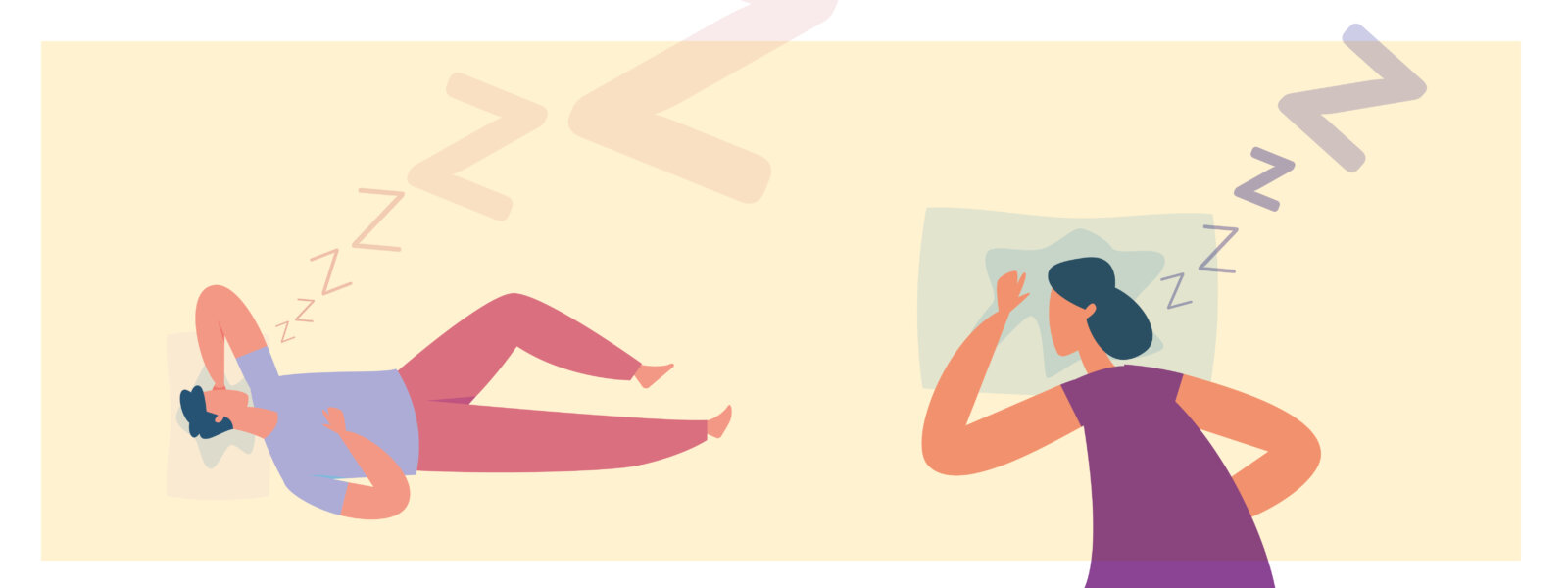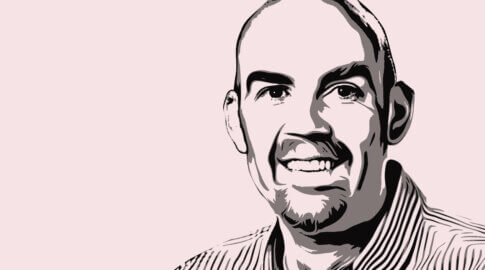Let’s talk sleep…
Psychotherapist Sophie Papageorgis lives with pulmonary hypertension and is passionate about helping others with the condition. In this advice piece, she explores the link between sleep and mental wellbeing – and explains what you can do if PH is scuppering your slumber.
Ah, a good night’s sleep. Something which you’d hope would be natural and simple, is often so difficult to achieve!
It feels as though nowadays we all have such busy lives and are always thinking of the next thing on the to do list, or worrying about something that’s coming up. Throw in some anxiety around living life with pulmonary hypertension, managing symptoms, and being physically exhausted, and it’s often a recipe for a poor night.
Sleep is vital for physical and mental health recovery. Not being allowed to sleep is a form of torture. I’m sure we all know too well how horrible it is in the middle of the night, watching the time barely move, thinking “If I fall asleep now, I can get four hours in… two hours in…” and so on.
Lack of sleep has a big negative impact on mood. It can cause depression, heighten anxiety, increase irritability, and make life feel more overwhelming. It can lead us to want to self-medicate, which is a bit of a vicious cycle. Alcohol, for example, may help us fall asleep – but it will make us wake up earlier and increase anxiety.
So, we can agree that sleep is super important, but sometimes it is elusive. There are some things that we can try to help get a better night’s sleep. I’m not a fan of the expression ‘sleep hygiene’, but that’s what we’re aiming for. Her are some ideas…
Keep your bedtime routine consistent. If you can have some time away from your phone or screens that may help (though playing the colouring app on my phone often sends me to sleep – we’re all different!) Avoid eating and drinking, especially caffeine, too late, and try to go to bed and get up around the same time each day. These things aren’t always possible, but if you can keep them as a framework then it can be a useful place to start.
Avoid napping during the day. This is often easier said than done with a chronic condition like PH, but it can take the edge off your tiredness at night.
Do something relaxing before bed. Practice some mindfulness or take a relaxing bath, read a sleepy book (no murder mysteries!), play some calming music… anything that helps you to unwind and take away some of the stress of the day. If you’re into breathing exercises, then doing some deep slow breathing can help calm your body (although my scepticism about breathing exercises and lung conditions is rearing its head here).
Sort out those worries. If you can empty your head of some of your worries before bed (quite a bit before bed, so you have time to unwind after), this will help with getting off to sleep. Writing worries down is a pretty effective way of getting them out. If you have a worry monster, they can keep them safe for you overnight! It can be worth keeping a pen and paper by your bed, because if you wake up early overthinking, you can write down those thoughts/outstanding tasks to come back to later. At 5am, the thoughts and concerns we have are often a whole lot bigger than they need to be, and reminding yourself about this can help with recognising that they are just feelings, not facts.
Listen to a bedtime story (seriously!) Personally, the Calm app (other apps are available) has been a life-saver for me. It’s got some great boring stories, some fiction stories, people reading the shipping forecast, music, sleep routines, mindfulness, and more. If your mind wanders, you can gently pull it back to listening to the app, and getting sleepy.
TEARING UP THE RULEBOOK
Here’s an uninvited insight into my mind now… lots of the common sleep hygiene ‘rules’ tell you to get up if you can’t sleep, do something boring until you’re sleepy, and then go back to bed. This has never worked for me, so I’ve come up with these alternatives over the years that have proved more fruitful:
Yawning: I don’t know if this is a universal thing, but fake yawning quickly makes me genuinely yawn, and the more I yawn, the more sleepy I get.
Body mapping: Lay in bed and list all your body parts from head to foot. Personally, I don’t do it in a ‘mindfulness body scan type way’, it’s just something boring to occupy the mind. This also works in terms of playing the alphabet game (food and drink…Apple, Bread…), and counting (aim to get to 1000 and see how you get on).
Trying to stay awake: This one is normally my winner. I try really hard to stay awake. I lay in bed all comfy and wide awake and tell myself ‘I am not going to sleep tonight, and if I am still awake in an hour then I will get up and give up’. My mum always said I liked to be awkward… perhaps she had a point.
In summary, we work hard managing PH every day, and this means that we’re more likely to be knackered and in need of rest. Let’s all be kind to ourselves on days when the energy levels are particularly low, and accept that sometimes the sleep schedule is going to go out the window. Sweet dreams!
















